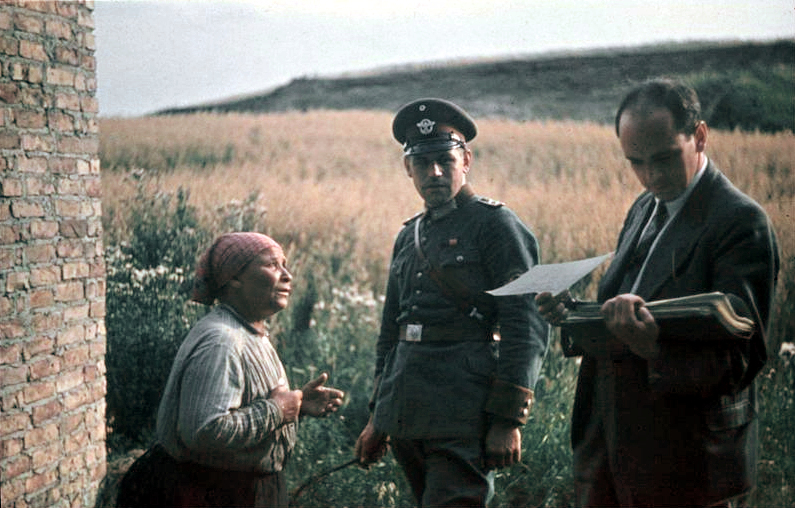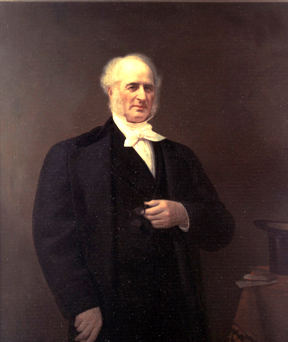|
A People Uncounted
''A People Uncounted'' is a 2011 Canadian documentary film directed by Aaron Yeger. It tells the story about the culture and history of the Romani people (commonly known as ''gypsies'') in Europe, with special emphasis on their plight during The Holocaust. The film also warns of the similarities in intolerance between the time of the Porajmos, Porajmos (Romani Holocaust) and the increasing intolerance and abuse of Rights of the Roma in the European Union, Roma rights in Europe today. It was nominated for a Producers Guild of America award in 2012. The film was featured in the New York Gipsy Festival and is part of Vanderbilt University's ''Holocaust Lecture Series''. References External links * * * 2011 documentary films 2011 films Canadian documentary films Documentary films about the Holocaust Romani genocide Documentary films about Romani people 2010s English-language films 2010s Canadian films {{2010s-Canada-documentary-film-stub ... [...More Info...] [...Related Items...] OR: [Wikipedia] [Google] [Baidu] |
Documentary Film
A documentary film or documentary is a non-fictional film, motion-picture intended to "document reality, primarily for the purposes of instruction, education or maintaining a Recorded history, historical record". Bill Nichols (film critic), Bill Nichols has characterized the documentary in terms of "a filmmaking practice, a cinematic tradition, and mode of audience reception [that remains] a practice without clear boundaries". Early documentary films, originally called "actuality films", lasted one minute or less. Over time, documentaries have evolved to become longer in length, and to include more categories. Some examples are Educational film, educational, observational and docufiction. Documentaries are very Informational listening, informative, and are often used within schools as a resource to teach various principles. Documentary filmmakers have a responsibility to be truthful to their vision of the world without intentionally misrepresenting a topic. Social media platfor ... [...More Info...] [...Related Items...] OR: [Wikipedia] [Google] [Baidu] |
Romani People
The Romani (also spelled Romany or Rromani , ), colloquially known as the Roma, are an Indo-Aryan ethnic group, traditionally nomadic itinerants. They live in Europe and Anatolia, and have diaspora populations located worldwide, with significant concentrations in the Americas. In the English language, the Romani people are widely known by the exonym Gypsies (or Gipsies), which is considered pejorative by many Romani people due to its connotations of illegality and irregularity as well as its historical use as a racial slur. For versions (some of which are cognates) of the word in many other languages (e.g., , , it, zingaro, , and ) this perception is either very small or non-existent. At the first World Romani Congress in 1971, its attendees unanimously voted to reject the use of all exonyms for the Romani people, including ''Gypsy'', due to their aforementioned negative and stereotypical connotations. Linguistic and genetic evidence suggests that the Roma originated ... [...More Info...] [...Related Items...] OR: [Wikipedia] [Google] [Baidu] |
The Holocaust
The Holocaust, also known as the Shoah, was the genocide of European Jews during World War II. Between 1941 and 1945, Nazi Germany and its collaborators systematically murdered some six million Jews across German-occupied Europe; around two-thirds of Europe's Jewish population. The murders were carried out in pogroms and mass shootings; by a policy of extermination through labor in concentration camps; and in gas chambers and gas vans in German extermination camps, chiefly Auschwitz-Birkenau, Bełżec, Chełmno, Majdanek, Sobibór, and Treblinka in occupied Poland. Germany implemented the persecution in stages. Following Adolf Hitler's appointment as chancellor on 30 January 1933, the regime built a network of concentration camps in Germany for political opponents and those deemed "undesirable", starting with Dachau on 22 March 1933. After the passing of the Enabling Act on 24 March, which gave Hitler dictatorial plenary powers, the government began isolating Je ... [...More Info...] [...Related Items...] OR: [Wikipedia] [Google] [Baidu] |
Porajmos
The Romani Holocaust or the Romani genocide—also known as the ''Porajmos'' (Romani pronunciation: , meaning "the Devouring"), the ''Pharrajimos'' meaning the hard times ("Cutting up", "Fragmentation", "Destruction"), and the ''Samudaripen'' ("Mass killing")—was the effort by Nazi Germany and its World War II allies to commit ethnic cleansing and eventually genocide against Europe's Romani people (including the Sinti) during the Holocaust era. Under Adolf Hitler, a supplementary decree to the Nuremberg Laws was issued on 26 November 1935, classifying the Romani as "enemies of the race-based state", thereby placing them in the same category as the Jews. Thus, the fate of the Roma in Europe paralleled that of the Jews in the Holocaust. Historians estimate that between 250,000 and 500,000 Romani and Sinti were killed by Germans and their collaborators—25% to over 50% of the estimate of slightly fewer than 1 million Roma in Europe at the time. Later research cited by Ian Hanco ... [...More Info...] [...Related Items...] OR: [Wikipedia] [Google] [Baidu] |
Rights Of The Roma In The European Union
The European Union is committed to upholding Human Rights and sees this as a core and essential part of its role. As such the EU seeks to protect and defend these rights within member states and in interactions with non-members. The Roma are one of the largest minority groups within the EU numbering over six million people. Despite their number they have faced a long history of systematic abuse and significant marginalisation within Europe. Reports on the situation of the Roma within Europe have found that they remain one of the most vulnerable minorities and still fall significantly behind their European counterparts in regards to education, employment, access to health care, and housing. The EU recognises that there are issues of human rights violations relating to the treatment and integration of the Roma within the EU and have taken steps to encourage each member state to take responsibility and work towards greater Roma inclusion specifically in the areas of health, housin ... [...More Info...] [...Related Items...] OR: [Wikipedia] [Google] [Baidu] |
Producers Guild Of America
The Producers Guild of America (PGA) is a 501(c)(6) trade association representing television producers, film producers and New media, New Media producers in the United States. The PGA's membership includes over 8,000 members of the producing establishment worldwide. Its co-presidents are Gail Berman and Lucy Fisher. The PGA is overseen by a board of directors that represents producers from across the nation. Susan Sprung has served as the organization's National Executive Director since 2019. The Producers Guild of America offers several benefits to its members, including seminars and mentoring programs, and entrance to special screenings of movies during Oscar season. History The Producers Guild of America began as two separate organizations, with the Screen Producers Guild being formed on May 16, 1950. Its first president was William Perlberg. In 1957, television producers followed suit, forming the Television Producers Guild, with Ben Brady as its first president. These merge ... [...More Info...] [...Related Items...] OR: [Wikipedia] [Google] [Baidu] |
Vanderbilt University
Vanderbilt University (informally Vandy or VU) is a private research university in Nashville, Tennessee. Founded in 1873, it was named in honor of shipping and rail magnate Cornelius Vanderbilt, who provided the school its initial $1-million endowment in the hopes that his gift and the greater work of the university would help to heal the sectional wounds inflicted by the Civil War. Vanderbilt enrolls approximately 13,800 students from the US and over 100 foreign countries. Vanderbilt is classified among "R1: Doctoral Universities – Very high research activity". Several research centers and institutes are affiliated with the university, including the Robert Penn Warren Center for the Humanities, the Freedom Forum First Amendment Center, and Dyer Observatory. Vanderbilt University Medical Center, formerly part of the university, became a separate institution in 2016. With the exception of the off-campus observatory, all of the university's facilities are situated on it ... [...More Info...] [...Related Items...] OR: [Wikipedia] [Google] [Baidu] |
2011 Documentary Films
Eleven or 11 may refer to: *11 (number), the natural number following 10 and preceding 12 * one of the years 11 BC, AD 11, 1911, 2011, or any year ending in 11 Literature * ''Eleven'' (novel), a 2006 novel by British author David Llewellyn *''Eleven'', a 1970 collection of short stories by Patricia Highsmith *''Eleven'', a 2004 children's novel in The Winnie Years by Lauren Myracle *''Eleven'', a 2008 children's novel by Patricia Reilly Giff *''Eleven'', a short story by Sandra Cisneros Music *Eleven (band), an American rock band * Eleven: A Music Company, an Australian record label * Up to eleven, an idiom from popular culture, coined in the movie ''This Is Spinal Tap'' Albums * ''11'' (The Smithereens album), 1989 * ''11'' (Ua album), 1996 * ''11'' (Bryan Adams album), 2008 * ''11'' (Sault album), 2022 * ''Eleven'' (Harry Connick, Jr. album), 1992 * ''Eleven'' (22-Pistepirkko album), 1998 * ''Eleven'' (Sugarcult album), 1999 * ''Eleven'' (B'z album), 2000 * ''Eleven'' (Rea ... [...More Info...] [...Related Items...] OR: [Wikipedia] [Google] [Baidu] |
2011 Films
The following is an overview of the events of 2011 in film, including the highest-grossing films, film festivals, award ceremonies and a list of films released and notable deaths. More film sequels were released in 2011 than any other year before it, with 28 sequels released. Evaluation of the year Richard Brody of ''The New Yorker'' observed that the best films of 2011 "exalt the metaphysical, the fantastical, the transformative, the fourth-wall-breaking, or simply the impossible, and—remarkably—do so ... These films depart from 'reality' ... not in order to forget the irrefutable but in order to face it, to think about it, to act on it more freely". Film critic and filmmaker Scout Tafoya of '' RogerEbert.com'' considers the year of 2011 as the best year for cinema, countering the notion of 1939 being film's best year overall, citing examples such as ''Drive'', ''The Tree of Life'', ''Once Upon a Time in Anatolia'', ''Keyhole'', '' Contagion'', ''The Adventures of Tintin'', ... [...More Info...] [...Related Items...] OR: [Wikipedia] [Google] [Baidu] |
Canadian Documentary Films
Canadians (french: Canadiens) are people identified with the country of Canada. This connection may be residential, legal, historical or cultural. For most Canadians, many (or all) of these connections exist and are collectively the source of their being ''Canadian''. Canada is a multilingual and multicultural society home to people of groups of many different ethnic, religious, and national origins, with the majority of the population made up of Old World immigrants and their descendants. Following the initial period of French and then the much larger British colonization, different waves (or peaks) of immigration and settlement of non-indigenous peoples took place over the course of nearly two centuries and continue today. Elements of Indigenous, French, British, and more recent immigrant customs, languages, and religions have combined to form the culture of Canada, and thus a Canadian identity. Canada has also been strongly influenced by its linguistic, geographic, and ec ... [...More Info...] [...Related Items...] OR: [Wikipedia] [Google] [Baidu] |
Romani Genocide
The Romani Holocaust or the Romani genocide—also known as the ''Porajmos'' (Romani pronunciation: , meaning "the Devouring"), the ''Pharrajimos'' meaning the hard times ("Cutting up", "Fragmentation", "Destruction"), and the ''Samudaripen'' ("Mass killing")—was the effort by Nazi Germany and its World War II allies to commit ethnic cleansing and eventually genocide against Europe's Romani people (including the Sinti) during the Holocaust era. Under Adolf Hitler, a supplementary decree to the Nuremberg Laws was issued on 26 November 1935, classifying the Romani as "enemies of the race-based state", thereby placing them in the same category as the Jews. Thus, the fate of the Roma in Europe paralleled that of the Jews in the Holocaust. Historians estimate that between 250,000 and 500,000 Romani and Sinti were killed by Germans and their collaborators—25% to over 50% of the estimate of slightly fewer than 1 million Roma in Europe at the time. Later research cited by Ian Hanc ... [...More Info...] [...Related Items...] OR: [Wikipedia] [Google] [Baidu] |




